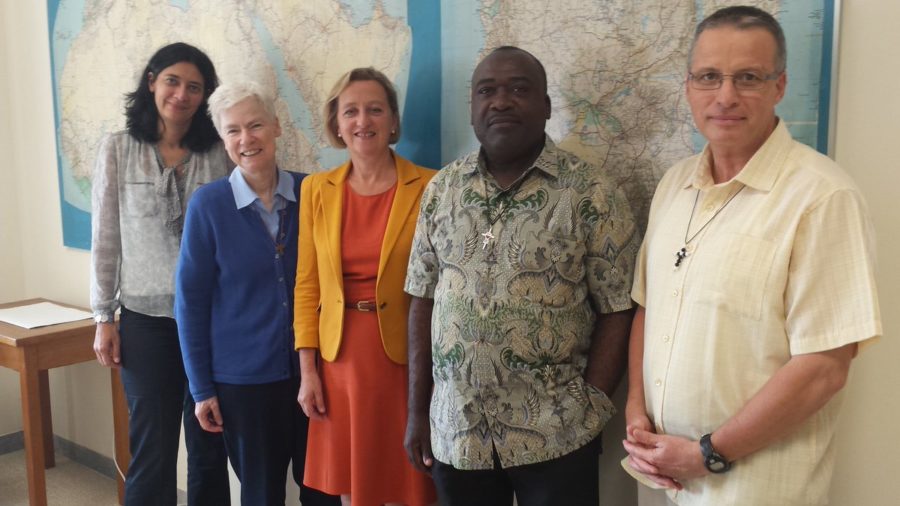On 10 December, the UN will commemorate the adoption of the Universal Declaration of Human Rights. The focus this year is “standing up for the rights of others”: a call to uphold human rights in our global community, where each of us can make a difference.
The Foreign Office in London and all British Embassies around the world will be marking Human Rights Day, as part of UK’s global commitment to stand up for universal human rights, and as a central moment of the UN campaign for 16-days of activism against gender-based violence, in particular against women and girls.
This year, our Embassy and the British Embassy in Rome have chosen to “Stand Up” against modern slavery. In the words of the Prime Minister Theresa May, “everyone has the right to live their life free from slavery”. This is a major priority on the British Government’s global agenda.
Watch the videos:
Sally Axworthy, British Ambassador to the Holy See
Elisa Ercoli, Associazione Differenza Donna
We are delighted that also Talitha Kum, the international anti-trafficking network of Catholic religious, present in 70 countries, took a Stand in our campaign. In this clip, its International Coordinator, Sr. Gabriella Bottani, says “no more” to human trafficking.
On Human Rights Day, we recognise the extraordinary contribution made by the Catholic networks in the fight against modern slavery, and thank them for their prevention work, for assisting victims, and rehabilitating them into communities and society, for building partnerships with governments, police, NGOs, other faiths’ leaders, to fight this crime together.
Another excellent example of developing partnerships and sharing best practice is the Santa Marta Group, founded in 2014 and named after the Pope’s Residence where participants stayed, which brings together police chiefs, Catholic Bishops, women religious from 24 different countries. In his address to the Group last October, Pope Francis called for “combating the social evil of the trafficking of people, linked to a new form of slavery, whose victims are men and women, often minors, exploited by the taking advantage of their poverty and marginalisation”.
To give voice to this plight of innocent and voiceless men, women and children – this is what we are standing up for.

